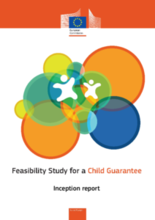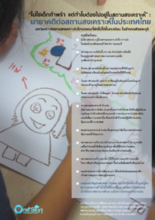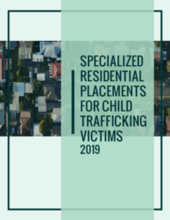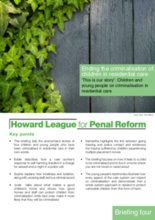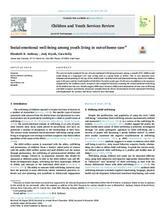Displaying 571 - 580 of 1510
This report - prepared for the European Commission by Applica and the Luxembourg Institute of Socio-Economic Research (LISER), in close collaboration with Eurochild and Save the Children - provides a first mapping of the situation across the 28 Member States of the EU outlining the situation in relation to children, particularly the four target groups (TGs) of disadvantaged children (children in institutions, children with disabilities, children of recent migrants and refugees, and children living in precarious family situations) as well as an indication of the key issues in relation to children’s access to the five policy areas (PAs): housing, healthcare, nutrition, early childhood education and care, and education.
This summary report presents key findings and recommendations from an analysis of unregistered, private children's homes in Thailand's Sangkhlaburi District.
This study outlines the policies, practices, and programming that have been implemented across the US to provide specialized responses to exploited and trafficked youth within residential placement settings.
The study's objective was to determine what successful caregivers of orphaned and vulnerable children (OVC) in diverse countries do to sustain their positive mental health.
Informed by the qualitative method and the descriptive-interpretive design, this study, which was underscored by radical humanist goals of structural social work, reflects the voices of 16 youth who had transitioned out of care.
The aim of this meta-analysis is to identify the most effective interventions to promote parental engagement and family reunification in high-income countries.
This briefing, part of a series from the Howard Leauge, tells the anonymised stories of four children and young people who have been criminalised in residential care in their own words.
This qualitative case study explores the challenges facing children reunified with their families from an orphanage in Ghana.
A cross-sectional comparative descriptive study was conducted among 300 children of age 6-12 years from a pediatric outpatient department of a selected hospital and 300 children from selected orphanages in Kolkata to compare the prevalence of behavioral disorders in children under parental care and out of parental care using Strengths and Difficulties Questionnaire (SDQ).
The current study examined the use of socio-emotional well-being measures among a sample of 57 children and youth living in a congregate care type setting such as a group home or shelter.

